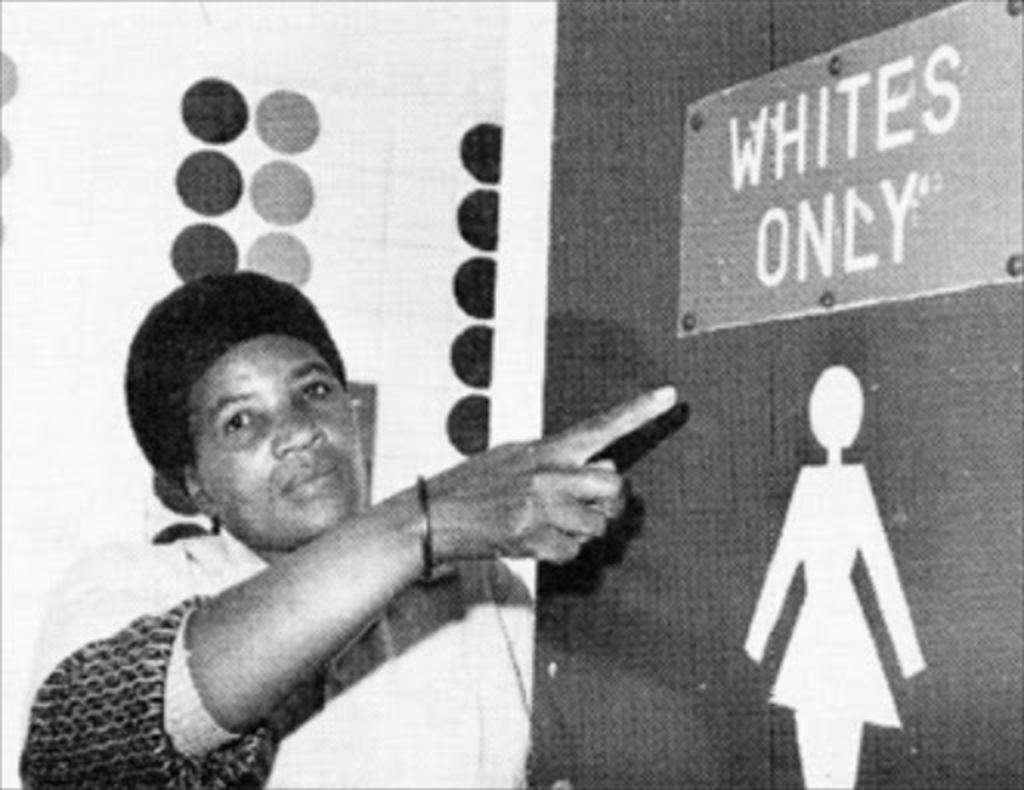Darryl Betts
darryllrbetts.wordpress.com
Darryl is a businessman and a post-graduate student in Philosophy at the University of Auckland, with particular interests in the philosophy of science, philosophy of mind, epistemology, logic, and AI. He holds a BSc in Computer Science and a BA in Philosophy, Logic and Computation.
For those of us that find ourselves barred from things which other Kiwis are enjoying, it is easy to draw comparisons between the vaccine mandate policies of the New Zealand government and the segregation of the American south 80 years ago or apartheid in South Africa 30 years ago.

If you are a shop owner or staff member who enforces the vaccine ‘passport’ policies or a member of the general public who agrees with them, please consider how similar this is to discrimination against blacks and what your moral obligations are as a result.
In the following I am going to use the term “blacks” because I want the reality of this to be clear – I’m not going to sugar coat things to spare your sensitivities. I also realise that if you are one of the people who is already taking a stand against our government’s discriminatory and divisive policies then this article isn’t speaking to you.
You might say that this is a different situation: barring an unvaccinated person from eating at a restaurant is a public safety issue.
But you only believe it is a public safety issue because you have been told by the government and health authorities that it is. There are lots of science based problems with this belief – but here is an even more fundamental problem.
If you were told by the government and health authorities that blacks carried a disease that placed others at risk, would you then simply accept that claim as true and be happy to bar blacks from eating in your restaurant? Would you simply go along with a mandate against blacks that the government or your employer forces on you? If what the government told you about blacks made you afraid of blacks, would that make it OK? Would you be happy to go in and eat, while black people stand outside and peer at you through the glass?
Wouldn’t you be deeply concerned about this? Wouldn’t you be concerned that this goes against everything modern society stands for? Wouldn’t you be concerned that this would undo eighty years of progress on racial equality? Consider the magnitude of what it took to achieve that – the struggle, the sacrifices.
Knowing the consequences, wouldn’t you at the very least want this policy to be subject to comprehensive and lengthy debate? Wouldn’t you want the science on which the policy was based to be utterly beyond question?
Wouldn’t you be extremely concerned if you became aware of the many scientists all over the world disputing the validity of the science on which this policy was based? For example if someone points out to you that the science actually shows that a black person does not pose a significantly greater risk to you than a white person, wouldn’t you want to be very sure before ignoring or dismissing that information? If you ignore such information – what kind of person does that make you in this situation?
And, even after all of that, wouldn’t you be deeply uncomfortable about doing this to the point where you might prefer to close your business, or resign from your job, or carry out a customer boycott, rather than indulge in such abhorrent behaviour which goes against everything you have been brought up to believe? Wouldn’t you want to carefully consider alternative solutions – such as actually testing people (be they black or white) for the disease and using that as a basis for exclusion instead of the colour of their skin?
Would you have been the person who accepted discrimination – one of those racist people you and many others claim to hate – or would you have been one of the few who took a stand against discrimination?
At the end of the day, we all discriminate. The word “discriminate” is, by itself, morally neutral – it simply means to recognise and act on some perceived difference. We do it all the time – in fact, we could not exist without discriminating.
Among the many types of discrimination that we perform, a few types of discrimination are considered deeply wrong – such as racial discrimination. But it isn’t really the fact that it is racial that matters – it is the fact that we don’t consider it justified. Furthermore, when the discrimination is very consequential – such as limitations to the freedom of another person – then we demand a very high level of justification. So high in the case of racial discrimination that many might consider it can never be justified.
How much justification will you demand before you accept blacks being barred from things that non-blacks are allowed? Would you ever think it was OK to treat other people like that? So what level of justification have you demanded for the exclusion of unvaccinated people from things you get to do? How certain are you that the science is beyond question, and that all other alternatives have been eliminated?
And even if you are sure of all of that, do you still think it’s OK to exclude the blacks unvaccinated from the places you are allowed to go? Or will you practise what you preach to others and say no to this discrimination?

